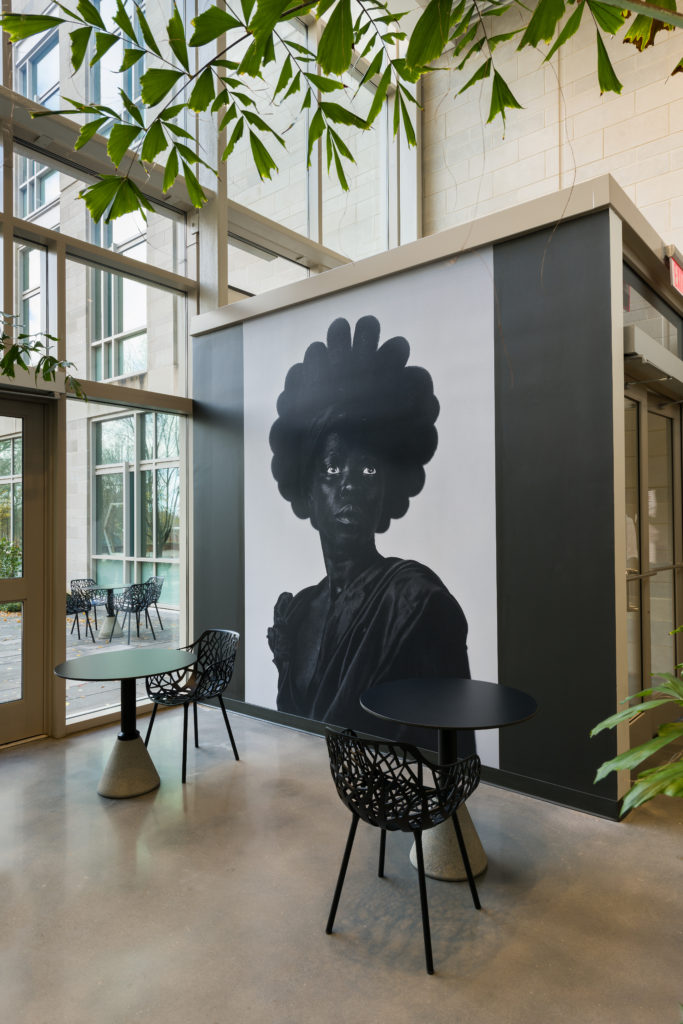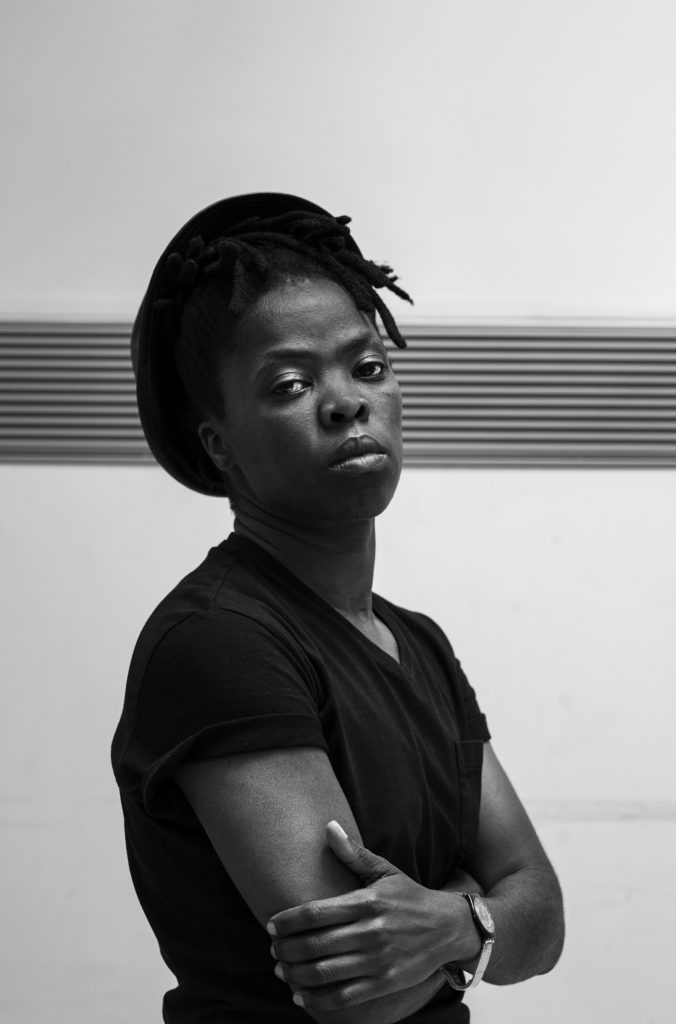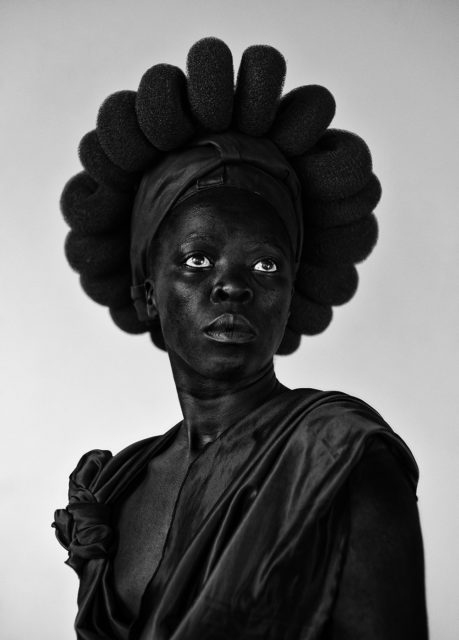Thanks to the generosity of John Andrew Macmahon ‘95, the Van Every/Smith Galleries will acquire a prominent work of art for the college’s collection. Ntozakhe II, Parktown, by South African artist-activist Zanele Muholi, is part of the artist’s highly-acclaimed series, Somnyama Ngonyama, currently on view at the Tate Modern, UK. At Davidson College, the artwork was recently installed at the E. Craig Wall Jr. Academic Center in anticipation of the return of students in January 2021.

In Muholi’s self-portrait series, Somnyama Ngonyama, translated from isiZulu to “Hail the dark lioness,” the visual artist and activist acts as both maker and subject. Photographing around the globe, Muholi uses props and costumes to reinvent themself into a variety of personas – 365 in total, one for each day of the year.
To create the series, Muholi took inspiration from their community, including other Black South African queer and female individuals, as well as the experiences of domestic workers in South Africa, including Muholi’s own mother. Muholi reimagines objects often associated with domestic labor in their representations of Black women and queer folk. Here, in Ntozakhe II, Muholi creates a crown or afro of scouring pads. Combined with the dark, draped fabric around their shoulders and the artists’ posture – eyes lifted skyward and neck regally extended – the image evokes majesty. The artist’s decision to print the artwork nine feet tall emphasizes the grandeur; adhering it to the wall directly asserts its permanence. In this work, Muholi honors the lives and hardships of domestic laborers and others as the artist positions themself as Lady Liberty.
In describing their inspiration for the work, Muholi notes:
“In some ways, yes: Ntozakhe is based on the Statue of Liberty, representing the idea of freedom—the freedom all women should have—as well as pride: pride in who we are as black, female-bodied beings. But what kind of freedom are we talking about? What is the color of the Statue of Liberty? What race is the figure monumentalized as Lady Liberty?”
In these self-portraits, Muholi challenges the history of anthropological photography that flattens and nullifies Black South African identity. They fight against the systemic violence and silence that Black South African lesbians in particular face, using their work to to document – and empower – Black LGBTQIA individuals and the vital roles they have played in their community:
“I was thinking of black women who were civil and human rights activists and criminalized for their activism, and how today so many women are prisoners in their own lives, neither free in their domestic situations nor in society at large—especially women of color.”

Muholi’s shifting identities throughout the Somnyama Ngonyama series challenges the culturally dominant images of Black people typically seen in the media. Infusing concepts of Afro-futurism – a Black cultural lens on the politics, aesthetics, and cultural aspects of science, science fiction, and technology – Muholi imagines alternate realities and a better future for their Black, South African, and queer communities. We hope students, faculty, and staff viewing this image on our campus feel empowered and inspired, as Muholi intends.
Muholi was born in Umlazi, Durban and lives in Johannesburg. They studied Advanced Photography at the Market Photo Workshop in Newtown, Johannesburg, and in 2009 completed an MFA: Documentary Media at Ryerson University, Toronto. Muholi has won numerous awards including the ICP Infinity Award for Documentary and Photojournalism (2016); Africa’Sout! Courage and Creativity Award (2016); the Outstanding International Alumni Award from Ryerson University (2016), among others. Muholi’s work has been exhibited at Documenta 13; the South African Pavilion at the 55th Venice Biennale; and the 29th São Paulo Biennale. Solo exhibitions have taken place at institutions including the Stedelijk Museum, Amsterdam; Brooklyn Museum, New York; Schwules Museum, Berlin; and Casa Africa, Las Palmas, and their work is included in the collections of the Boston Museum of Fine Arts; the Carnegie Museum of Art; the Guggenheim Museum; the Museum of Modern Art New York; the San Francisco Museum of Art; the Tate Modern, London and others.
-Cole Thornton ’21

